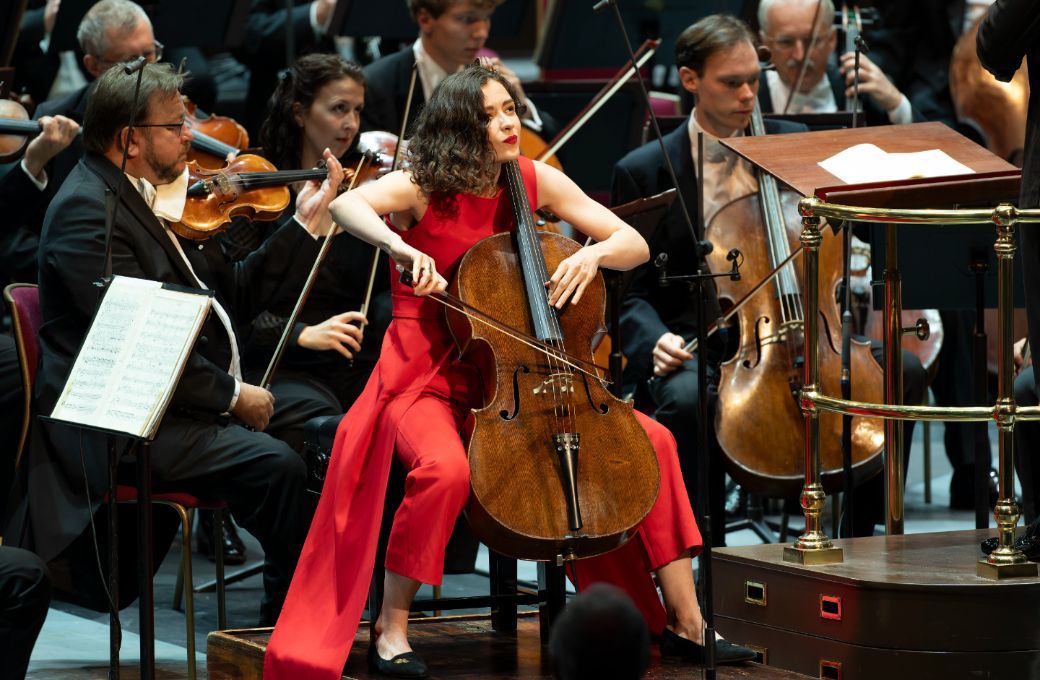The pinnacle of all things Czech at this year’s BBC Proms must surely be the arrival of the Czech Philharmonic under Principal Guest Conductor Jakub Hrůša. As audiences the world over will know, Hrůša may well be unashamedly passionate about music from his homeland, but he is certainly not a one-trick pony. But when the stars do align, and there is an opportunity to bring this partnership to the Royal Albert Hall in Dvořák and Suk in this “Year of Czech Music”, it was like basking on the banks of the Vltava. The two composers’ personal connections also created a storyteller’s dream, the stories coming not just from the music but also their backdrops – more than one tale to tell.

It was a hop, skip and a jump for Hrůša, the Czech Philharmonic and cellist Anastasia Kobekina, coming hot foot from the Rheingau Music Festival in Wiesbaden to open the programme with Dvořák‘s Cello Concerto. Kobekina came refreshed, with a musical intensity that was plain to see. Her feathery articulation came to the fore in many pin-drop moments, reserving force for key passages and providing a persuasive searching quality throughout. There was a natural feel for the movement of the piece between Kobekina and Hrůša, but the extreme care taken to nurture each phrase, whilst beautifully played, did create a sense of over-shaping and a slight lack of continuity. Nevertheless, Hrůša‘s support provided drama and sway beneath Kobekina’s delicate weaving and relentless carving, with stand-out moments including a wonderfully nostalgic horn passage and a rhapsodic duet between cello and solo violin. Her encore was a delightful romp, a toe-tapping dance written by her father for cello and tambourine, leaving many smiles on faces.
This year marks the 150th anniversary of Josef Suk’s birth and the 120th anniversary of Antonín Dvořák’s death, so it was apt to programme Suk’s Symphony no. 2, “Asrael”, named after the mythological angel of death and commemorating the death of his father-in-law and mentor, Dvořák, and the untimely death of his wife just a year later. Hrůša has described Suk as “a Czech Mahler”, and clearly revelled in the large orchestral canvas and instrumental colourings of Suk’s score. The Czech Philharmonic responded whole-heartedly, with grinding fulsome strings, luminous woodwinds and full-bodied brass, the overall sound being refined but still with a welcome earthiness.
The turbulence and heightened expression of the outer movements, with a strikingly cataclysmic climax in the first movement, contrasted with Hrůša‘s crystalline sheen of the second movement, with a slightly stilted but effective series of sighs, and the elegiac Adagio, Suk’s affectionate and cathartic tribute to his late wife. The central third movement had so much going on, which Hrůša joined up expertly, with overlapping phrases and hand-offs between sections of the orchestra meticulously handled and revealing much of the inner detail. The serenity of the winds and brass over rippling strings in the final pages provided satisfying closure.


